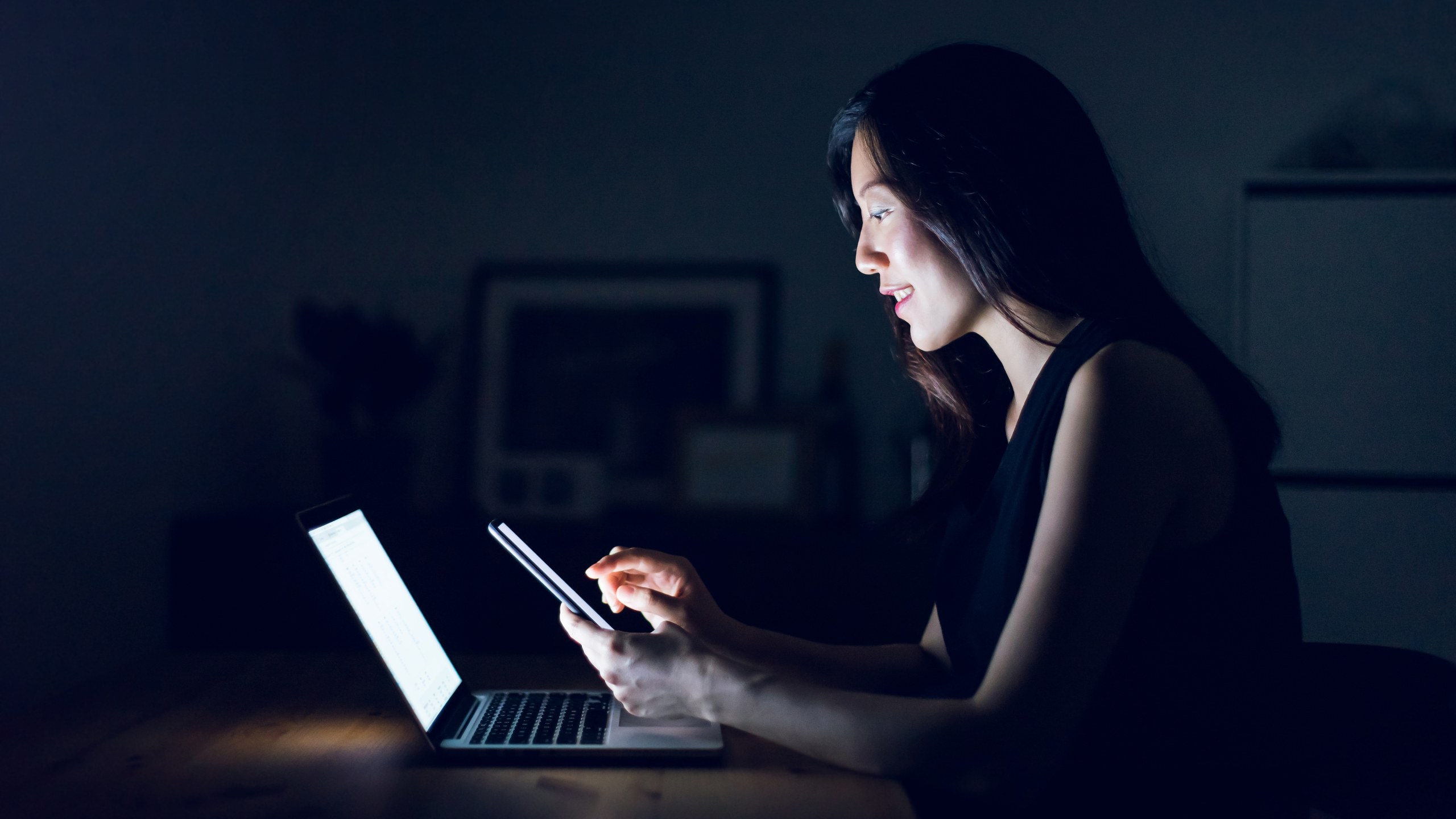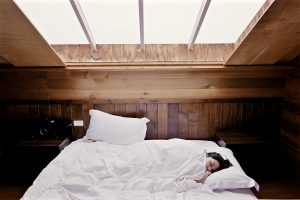Nowadays, lightbulbs are not the only reason our sleeping schedules are affected but the blue light emitting from our screens also plays a huge role in keeping us up once it becomes dark outside. With the amount of technology used daily, whether it involves completing an assignment on our laptops or checking social media multiple times throughout the day could be the leading cause to accelerated aging.

Blue Light Affecting Eyes via Screens in Dark Room
Image Source: Allure | Getty Images
A Bright Idea
Before lightbulbs were invented life was simple, and people would go to bed as soon as the sun went down. The effect light has on our health is often disregarded when in fact it’s critical to understand. Who thought such a small artifact present all around us could lead to detrimental effects? However, light is necessary for life and is an aspect which changed the world. Therefore, understanding the history behind the lightbulb is important as the following video produced by Neha Barjatya describes.
Out of Our Sight
In particular to light, humans are exposed to an increasing amount of blue-light produced through light emitting diodes (LED) every day. Recent research conducted at Oregon State University suggests that even though light may not be reaching our eyes directly, blue wavelengths have the ability to reach our brains and retinas that further damage cells.
In the specific study conducted by researcher Jaga Giebultowicz and colleagues, flies exposed to 12 hours of light and 12 hours of darkness exhibited having shorter lifespans when compared to flies that stayed in complete darkness throughout a 24-hour period. The Drosophila melanogaster are common fruit flies and useful model organisms as their cellular and developmental mechanisms are similar to humans and other animals. When exposed to blue-light their retinal cells and neurons had impaired locomotion as they were not able to partake in common behaviour of being able to climb the enclosures walls. When mutant flies without eyes were looked at, they seemed to display the same impairments, suggesting that the simple presence of blue light wavelengths are harmful.
Further analysis on light spectrums showed that without the blue, lifespan only shortened slightly; it was only once blue light was added that there were drastic shortages. Although, Giebultowicz whom specializes in analyzing the bodies biological clock claims that natural light is critical for the bodies circadian rhythm as it allows for physiological processes such as brain wave activity, hormone production and cell regeneration to occur. She continues to state, “if given a choice, avoid blue light”.
A Future Without Blue-Light?
With many cures found for diseases within the past century, human lifespan has already increased significantly even though we continue to use increased amounts of artificial light. Humans in general are often driven to focus on ways to increase lifespan through acting healthier. And with advanced science always proving to provide methods that design better health spectrums for the population, there is no doubt eliminating blue light may become a solution for the future. As of now though, researchers recommend setting device screens to block blue emissions for longer living!
Written By: Sana Furqan

